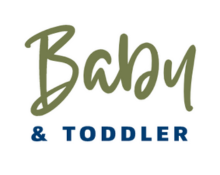
Breastfeeding a baby with reflux can be hard work, but there are strategies you can try to help manage the symptoms and make feedings more comfortable. Here are some tips:
Keep your baby upright: After feedings, try to keep your baby in an upright position for at least 30 minutes. This can help reduce the likelihood of reflux episodes and allow time for digestion.
Feed in an upright position: When breastfeeding, position your baby in a more upright position. This can help prevent milk from flowing back up into the esophagus. You can use a nursing pillow or hold your baby in a slightly reclined position to achieve this.
Smaller, more frequent feedings: Offering smaller, more frequent feedings can help prevent your baby’s stomach from becoming too full, which can trigger reflux symptoms. Consider feeding your baby on demand and allowing them to feed at their own pace.
Burp your baby frequently: Pause during the feeding to burp your baby. This can help release trapped air and reduce the likelihood of reflux episodes.
Keep feedings calm and relaxed: Create a calm and peaceful environment during feedings to help reduce stress and promote better digestion. Minimize distractions, play gentle music, or provide white noise to create a soothing atmosphere.
Consider your diet: Certain foods in your diet can contribute to reflux symptoms in breastfed babies. Foods like caffeine, spicy foods, citrus fruits, and tomato-based products may worsen reflux. Pay attention to your diet and try eliminating or reducing potential triggers to see if it makes a difference in your baby’s symptoms.
Elevate the head of the crib: Elevating the head of your baby’s crib can help reduce reflux episodes during sleep. Place a firm pillow or wedge under the mattress to create a slight incline. However, ensure that your baby’s sleep surface remains safe and free of any suffocation hazards.
Consult with a healthcare provider: If your baby’s reflux symptoms are severe or persistent, it’s important to consult with your healthcare provider. They can evaluate your baby’s condition, provide further guidance, and recommend any necessary interventions or medications if needed.
Remember that every baby is different, and what works for one may not work for another. It may take some trial and error to find the strategies that provide relief for your baby’s reflux symptoms. Be patient, seek support from healthcare professionals, and trust your instincts as a parent.
